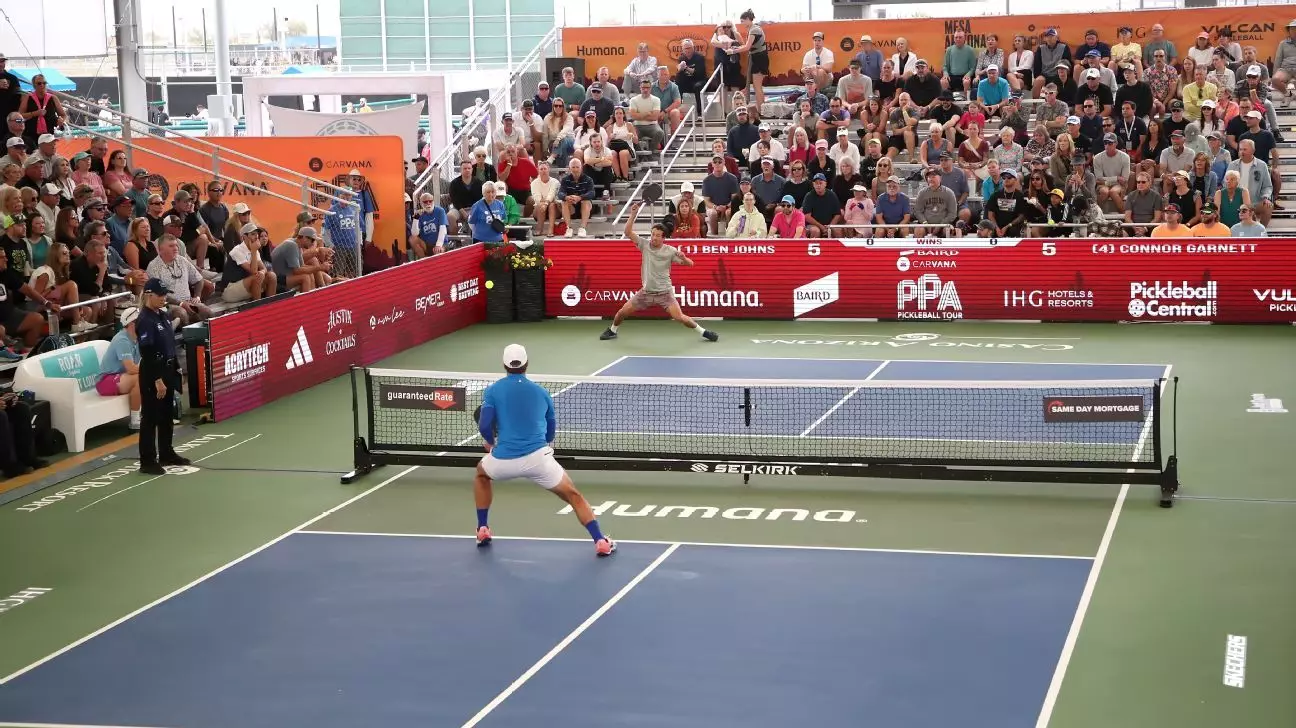The recent formation of the World Pickleball Players Association (WPPA) represents a groundbreaking turning point in the evolution of professional pickleball. For the first time, the sport’s top athletes are banding together with a unified voice, demonstrating a proactive approach to defending their interests and shaping the future of their careers. This move transcends mere organizational reorganization; it symbolizes a newfound assertion of agency, signaling that players are no longer content to be passive recipients of league decisions. Instead, they are stepping into leadership roles, demanding transparency, fairness, and a focus on health and well-being.
The creation of the WPPA underscores a critical need for player empowerment in a rapidly growing sport that has captured the imagination of a mainstream audience. As pickleball’s popularity surges, so does the recognition that players should have a say in pivotal issues like safety protocols, scheduling fairness, and equitable compensation. This shift aligns with broader trends seen in other professional sports, where athletes increasingly advocate for their rights and influence sport governance. The associations of tennis, basketball, and baseball have long illustrated the importance of such organized representation, and pickleball’s players are now following suit, acknowledging that collective action is the most effective way to secure meaningful change.
Unity in Diversity and the Power of Independence
The WPPA’s establishment draws attention to its distinctive structure—an independent body governed by a seven-member player-director board. Unlike the historical efforts of tour-sponsored player councils that often lacked the independence necessary to enact lasting reforms, the WPPA aims to operate free from league interference. This independence is crucial; as Collin Johns emphasizes, it’s about setting minimum standards and ensuring fairness regardless of a player’s ranking. From the No. 1 seed to those just starting their professional journeys, all players deserve equal treatment.
This approach signifies a strategic acknowledgment that true progress hinges on independence. It allows the players to negotiate from a position of strength, rather than being subject to the sometimes conflicting interests of tournament organizers or league executives. Moreover, the involvement of Sports Solidarity, a group with a successful track record of unionization efforts in baseball, lends credibility and strategic insight. Marino’s experience demonstrates that players united for a common cause can effect real change—a message that resonates profoundly within the pickleball community.
Such a move also highlights the importance of transparency and accountability. The issues at stake are not solely about paychecks; they extend to safety measures, scheduling conflicts, and discipline—areas where existing structures have often fallen short. By organizing independently, players set the stage not only for immediate improvements but also for long-term stability and respect within the sport.
Strategic Advocacy Today, Reshaping the Future of Pickleball
The WPPA’s emergence invites a broader dialogue about how sports evolve when athletes are granted a significant voice. While the association currently resembles a group like the Professional Tennis Players Association rather than a full-blown union, its influence could grow over time. Its goal is to establish standards that foster professionalism, fairness, and safety—elements essential for long-term sustainability of the sport.
Moreover, the support from the Professional Tennis Players Association underscores that athletes across disciplines recognize the importance of independence in advocacy. Their endorsement provides a valuable blueprint, emphasizing that a unified, player-led movement is a positive development—not a disruptive one. It signifies that players are invested not just in their own success but in the integrity and growth of pickleball itself.
In the context of annual earnings that now sometimes reach hundreds of thousands of dollars, players are increasingly aware of their value and influence. They realize they must proactively shape the rules and norms governing their profession or risk becoming sidelined by external interests. The WPPA exemplifies this proactive stance, aiming to foster a culture where athletes are respected as key stakeholders rather than mere performers.
As pickleball continues its explosive ascent, the importance of organized player representation seems undeniable. The establishment of the WPPA heralds a new chapter—one where players are no longer passive participants but active architects of their sport’s future. This movement promises to foster a climate of fairness, transparency, and shared growth—elements that will ultimately determine the sport’s standing on the global stage.


Leave a Reply